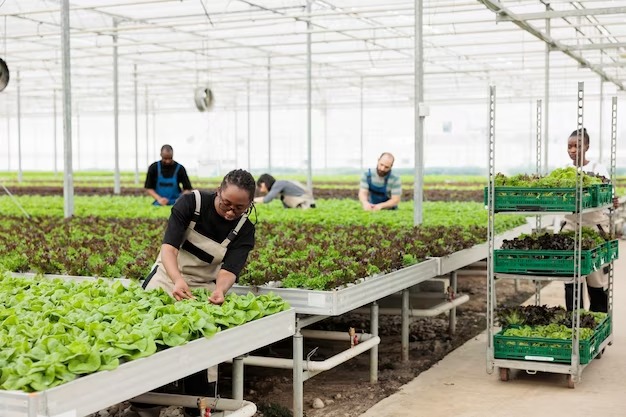Urban Farming in Singapore: The Rise of Locally-Grown Brands and Their Market Potential

Singapore, a shining gem of urbanization, is now pioneering a movement that’s setting global benchmarks. Beyond its impressive skyscrapers and cosmopolitan charm, there’s a fresh narrative unfolding: urban farming. As one steps into this city-state, it’s not just the towering buildings that captivate but also the unexpected pockets of green, meticulously interspersed.
With an increasing emphasis on local produce and sustainability, Singaporean brands are weaving a new story. They’re integrating agriculture into urban designs, reflecting a powerful commitment to both progress and planet. As we delve deeper into this topic, we’ll uncover how Singapore is harmoniously blending urban life with sustainable farming, setting a precedent for cities worldwide.
Concrete Jungle Meets Green Oasis
Singapore, with its towering skyscrapers and urban sprawl, might seem an unlikely candidate for farming. But, surprise! This small city-state is fast becoming a hotspot for urban agriculture. Rooftops, terraces, and even indoor spaces are turning into lush, green patches.
Here’s a stat to get us started: As of 2021, Singapore aims to produce 30% of its nutritional needs locally by 2030, up from less than 10%. This ambitious goal is aptly named the “30 by 30” initiative. Let’s see how urban farming plays a pivotal role in this.
From Hobbyists to Entrepreneurs: The Local Brand Boom
The Innovative Agri-tech
Local brands aren’t just growing plants; they’re growing them smartly. Think hydroponics, aquaponics, and vertical farming. Brands like Edible Garden City and Sustenir Agriculture are pioneering this movement, ensuring that farming isn’t just sustainable but also efficient in a space-starved city.
Beyond Greens: A Diverse Produce Portfolio
While leafy greens dominate the urban farming scene (thanks to their quick growth cycles and small space needs), local brands aren’t stopping there. We’re talking mushrooms, herbs, and even strawberries!
Market Potential: The Goldmine Waiting to be Tapped
Consumer Awareness & Preference
The organic and locally-sourced food trend isn’t just a global phenomenon. Singaporeans are quickly hopping onto this bandwagon. With increasing awareness about carbon footprints and the benefits of fresh produce, there’s a rising preference for local brands.
Here’s a noteworthy stat: A 2019 survey found that over 70% of Singaporeans expressed a willingness to pay a premium for locally-produced food. That’s a clear market signal!
Restaurants & Hotels: The Big Clients
It’s not just individual consumers. Restaurants and hotels in Singapore are eyeing local urban farmers to source fresh produce. With farm-to-table concepts gaining traction, chefs are keen on ingredients that are as fresh as they come.
Challenges and the Road Ahead
No rose without thorns, right? While urban farming in Singapore holds promise, it does come with its set of challenges.
1) High Initial Costs: Setting up hydroponic systems or climate-controlled chambers isn’t cheap.
2) Skilled Labor: Urban farming isn’t traditional farming. It requires a mix of agricultural and technical knowledge.
However, with the Singaporean government’s supportive policies and grants, many of these challenges are being addressed.
Wrapping it Up: A Future Rooted in Sustainability
The skyscrapers of Singapore are no longer just about business and luxury; they’re about life, growth, and sustainability. As urban farms bloom amidst the city’s hustle and bustle, it’s evident that the future of food in Singapore is local.
For those wondering if urban farming is just a fleeting trend, here’s some food for thought: the fusion of technology, sustainability, and market demand suggests that these urban farms are here to stay and grow.
So, the next time you relish a salad or sip on a smoothie in Singapore, remember: those fresh greens might just be from the rooftop next door! Here’s to a future where every urban space is a potential farm, and every meal is a testament to sustainability. Cheers to growing up and growing green!






